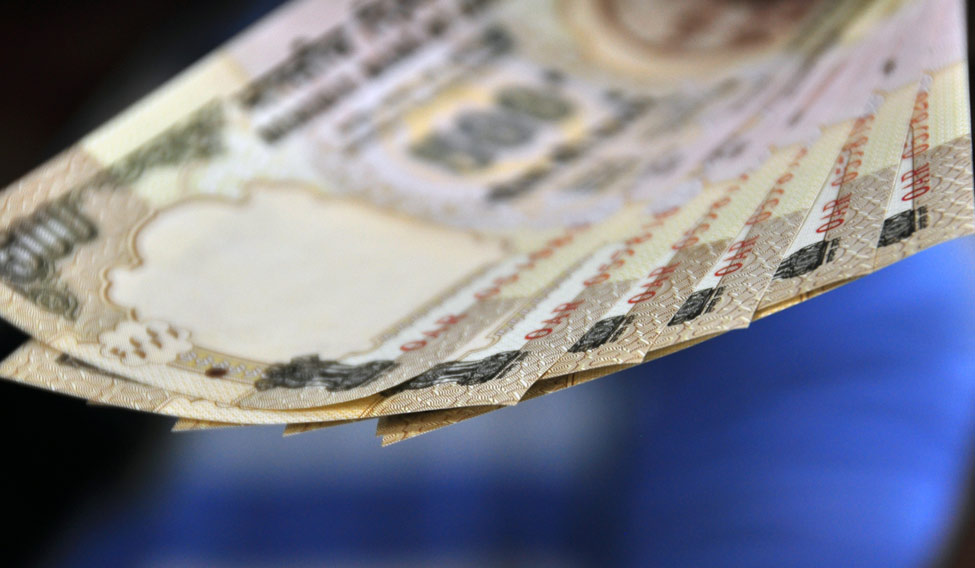The rupee fell to near record lows against the dollar on Wednesday, forcing the Reserve Bank of India (RBI) to intervene to stem further falls on a tough day for Asian currencies.
The rupee fell to as low as 68.67 to the dollar, not far from a record low of 68.85 hit in August 2013 when India was struggling with its worst financial turmoil since the 1991 balance of payment crisis.
It was trading at 68.6100/6150 as of 11.35 am, down nearly 0.4 per cent from Tuesday's close of 68.3725/68.3825 and taking its losses so far this year to around 3.6 per cent.
In 2013 global markets were hit by fears of a "Fed taper" as the US central bank sought to reduce its massive policy easing. This time around the rupee is also responding to a worsening global environment, including uncertainty about low oil prices and continued worries about China's economy.
Traders said they expect the rupee to soon test the record low, with one-month non-deliverable forwards PNDF already trading at 69.
Meanwhile, the one-month implied volatility INRVOL of the currency touched a six-month high of 7.74 per cent. It was 7.05 per cent on Tuesday.
But traders were hoping India's sturdier economic fundamentals than in 2013 and foreign exchange reserves of near a record $355 billion could help reduce some of the concerns, though much would depend on how the Reserve Bank of India (RBI) responds.
"The rupee can go much weaker," said Ashtosh Raina, head of FX trading with HDFC Bank.
"Once it touches 68.85 (to the dollar), we need to see how the macroeconomic indicators pan out and we have to watch what the central bank does," Raina said.
Most emerging Asian currencies slid on Wednesday with South Korea's won at 5-1/2-year low on doubts over the sustainability of an oil rebound.
The rupee is the second worst-performing Asian currency tracked by Reuters so far this year. Only the won has fallen more.
Foreign investors were net sellers in the first two months of 2016, pulling $2.2 billion from India's debt and equity markets, but those outflows come after they had bought a net $12.2 billion in 2015.
The RBI sold dollars via state-run banks to prevent further falls, traders said.
RBI Governor Raghuram Rajan in September said India would be "an island of relative calm in an ocean of turmoil" and has touted the country's lower inflation and higher growth than other economies.
Rajan has indicated the RBI will step in to ease volatility in the rupee but would not manage exchange rates.




